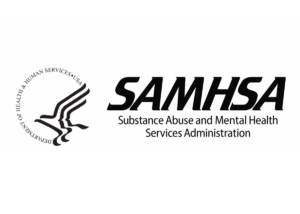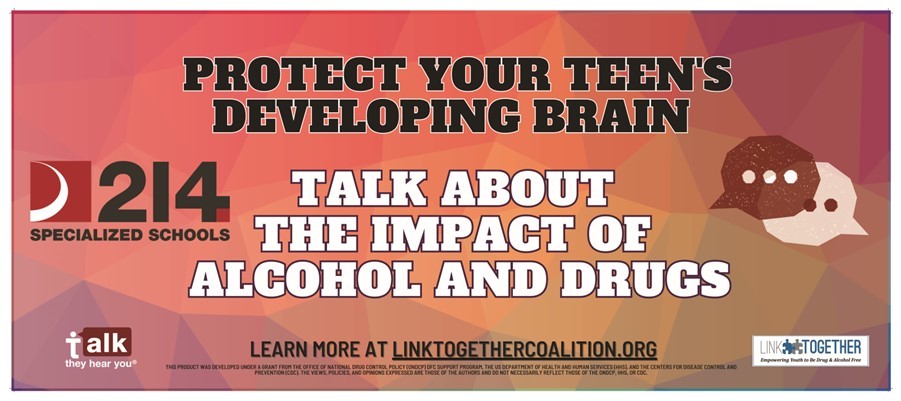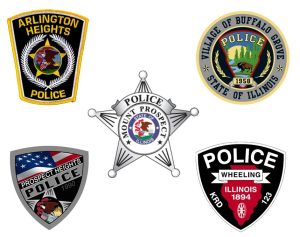Parent Prevention Toolkit
Prevention – Intervention – Resources
OUR GOAL
The communities of District 214 are working towards prevention and empowering youth to be drug and alcohol free by providing education, awareness, and community initiatives, with the Link Together Coalition.
The majority of Wheeling Township Youth do not use alcohol or other drugs. (Illinois Youth Survey, 2022)

PREVENTION
District 214 School Policy Awareness
2022 – 2023 D214 Student and Parent Handbook
Reference page 34: STUDENT BEHAVIOR POLICY – Policy 7:190 and page 55: VISITORS TO AND CONDUCT ON SCHOOL PROPERTY – Policy 8:30
Curfews
Curfews are set for the safety and well-being of our children. It is especially important to set limits for them. Whenever possible, involve your teen in the setting of their curfew. Local laws also govern curfews. The Villages of Arlington Heights, Buffalo Grove, Elk Grove, Mount Prospect, Prospect Heights, Rolling Meadows and Wheeling have the following curfews for teens 17 years of age and younger:
Sunday-Thursday 11:00 p.m. to 6:00 a.m.
Friday and Saturday 12:00 a.m. to 6:00 a.m.
Nighttime driving restriction for drivers under 18:
Sunday-Thursday 10:00 p.m.
Friday-Saturday 11:00 p.m.
Communication with Your Teen
Five Conversation Goals
Visit SAMHSA’s website Talking to Kids About Alcohol and Other Drugs: 5 Conversation Goals
Research suggests that one of the most important factors in healthy child development is a strong, open relationship with a parent. It is important to start talking to your children about alcohol and other drugs before they are exposed to them—as early as 9 years old.

Parent/Guardian Communication: In Wheeling Township, 49% of 9th-12th grade teens report that their parents/guardians have talked to them in the past year about DUI, 51% about alcohol, and 49% about marijuana. (IYS, 2022)

Ways to Prevent Your Teen From Using Drugs and Alcohol
Parent Awareness Questions to Think About:
- Who is your child’s best friend?
- What are the names of the best friend’s parents?
- Does your teen have a favorite teacher?
- Did your teen finish their homework last night?
- When was the last time your teen was disappointed about something?
- When was the last time your teen was excited about something?
- What is your teen’s favorite interest?
- What is your teen’s favorite music?
- What was the last movie your teen saw?
- Who does your teen respect and admire?
Parent Awareness Tips:
- Know where your teen is when they are not home.
- Know your teens friends and their parents. Make sure you approve of the people they are socializing with. Work together with other parents. Email and call them.
- Keep your teen busy after school. If you cannot be home, make sure your teen is involved with extra curricular activities. Keep in mind that supervision and check-ins with your teen on “late arrival” school days are important as well.
- Develop a relationship with your teen. Talk with them about things that are important to both of you.
- Spend time enjoying activities your teen likes.
- For more prevention tips visit samhsa.gov/underage-drinking
When Your Teen Attends a Party
Considerations for Parents/Guardians:
- Contact the parents of the party host in advance to discuss:
- Location and start/end time of the party.
- If an adult will be monitoring the party with the expectation that no drugs or alcohol will be permitted.
- Sleepovers can encourage risky behavior. How well you know your child’s friend, and their parents should be considered before giving permission.
- Ensure your teen notifies you if there are any changes in plans.
- Guarantee a plan that an adult is home and awake for your teen to check in with when they return to make sure they are safe and sober.
- Allow your teen to always feel comfortable to call home for a ride or assistance.
- Contact the parents of the party host in advance to discuss:
Many parties occur at the homes of students whose parents are out of town. Considerations before you leave:
- Guarantee supervision for your teens, even seniors in high school. Understand that you are responsible for your property, even when you are not present.
- Set clear rules with your teen that no parties or friends are allowed at home when an adult is not present.
- Notify the police, your neighbors, and your teen’s friend’s parents of the dates and times of your absence and who has access to your house. Discuss all details and guidelines with your teen before you leave.
When Your Teen Hosts a Party
Spending time with friends is an important part of young people’s lives for socialization, relaxation, and entertainment. Hosting or going to a party may include other activities that could prove harmful to teens. Parents have the right to expect that social situations remain free from alcohol/drug use and other risk-taking behaviors.
Supply Source: Ease of access: If you wanted to get ______ , how easy would it be? 26% of Wheeling Townhship teens say it would be easy to get marijuana and 41% say it would be easy to get alcohol. (IYS, 2022)
Below are ways to help ensure safe and healthy environments for teens to socialize:
- An adult should be present and visible throughout the party.
- Set ground-rules with your teen before the party.
- Encourage small parties—invitation only.
- Anyone who leaves the party should not be allowed to return.
- Do not have more teens at the party than you can monitor.
- Notify your neighbors of the party.
- Invite other parents to stop by.
- Be alert for signs of alcohol or other drug use.
- Watch for inappropriate or prolonged activity outdoors, in restrooms, or elsewhere in your home.
- Do not hesitate to call the police if the party gets out of hand.
Social Host Ordinances
Social host ordinances hold those who provide the location for underage drinking responsible, even if the organizer or host is not present at the party.
Without Permission: 22% of 9th-12th grade teens that drink report getting alcohol from their parents without permission. (IYS, 2022)
With Permission: 39% of 9th-12th grade teens that drink report getting alcohol from their parents with permission. (IYS, 2022)
Please check your local village social host ordinance:

INTERVENTION
Taking Action: What Parents/Guardians Can Do
If you believe that your teen is experiencing problems that are interfering with their family, peer, or school relationships, know that you are not alone! For many adolescents and their families, the teen years are often filled with turmoil, confusion, testing of limits, and power struggles. It is important to reach out for help before problems become severe. Consulting your family physician to rule out physical causes is a good first step. A phone call to one or more of your child’s teachers may also provide additional information about your child during the school day.
The Student Service Team at each D214 school works together to serve students in a variety of ways. They assist students with academic, emotional, behavioral, health and legal issues that might arise in their lives. They provide a link between home and school. The team provides more individualized assistance with decision making for all students, as well as serve as liaisons to outside agencies and services.
You may also choose to talk directly with your teen about the changes you have observed. Talking with your teen in a caring, concerned way often begins the process of reaching out for help. You may find the following “formula” helpful in planning what you will say and how you will present your concerns:
I care . . . (a statement of your care and concern)
I see . . . (talk about the behaviors you have witnessed)
I feel . . . (feeling words—how the behaviors impact you)
I want . . . (the behavior you desire from your child)
I will . . . (how you are willing to help)
Giving Teens What They Need to Succeed
Why do some teens successfully manage growing up, while others struggle?
Why do some avoid dangerous situations and activities, while others become involved in risky behaviors?
Many factors influence young people’s abilities to be successful in life. Two studies can help us understand some key factors. The CDC has identified Adverse Childhood Experiences (ACEs) that can lead to risky behavior. As parents/guardians and a community we can work together to reduce our students’ risk factors.
The Search Institute of Minneapolis has also identified specific, practical things that have significant and lasting impact on youth. The study focused on “assets” – positive things that help young people thrive. It identified 40 assets that youth need to help them make healthy decisions. Half of the characteristics are described as “internal assets” – commitments, attitudes, values and skills that support our youth from within. While we can’t dictate or force these characteristics, we can nourish and impact them by modeling a lifelong commitment to learning, volunteering in the community, and involving teens in family decisions. The remaining 20 are “external assets” – those that come from parents/guardians and the community that surrounds our students with support, limits, and the structure they need to thrive. We build these assets when we spend time with our teens, set clear expectations and boundaries, keep track of how they spend their time, and appropriately discipline them when the boundaries are crossed.
The Search Institute study clearly shows that the more of these assets youth have, the less likely they are to get involved in problem behaviors. It is our hope that the information contained in this booklet will help you to partner with The Link Together Coalition and District 214 as an “asset builder.” Our teens need all of us.
RESOURCES
School Contact Information & Local Resource Guide
Buffalo Grove 847-718-4000
Elk Grove 847-718-4400
John Hersey 847-718-4800
Prospect 847-718-5200
Rolling Meadows 847-718-5600
Vanguard 847-718-7870
Wheeling 847-718-7000
District 214 Office 847-718-7600
English OMNI Teen Resource Guide
Spanish OMNI Teen Resource Guide






